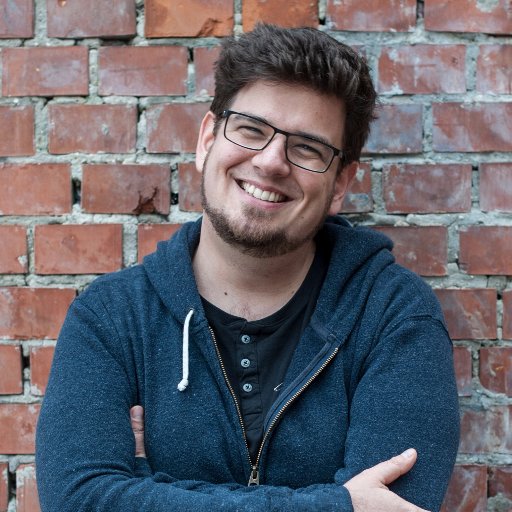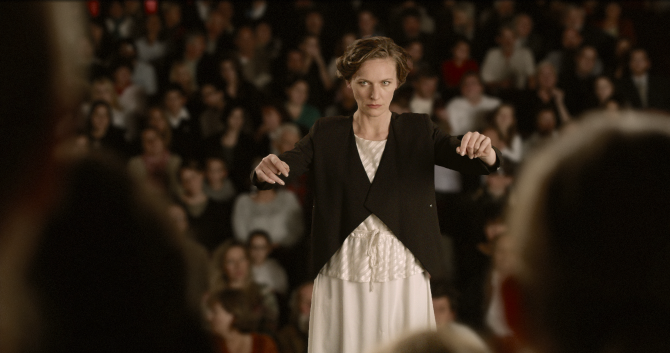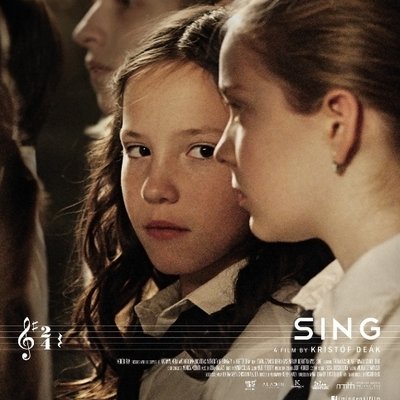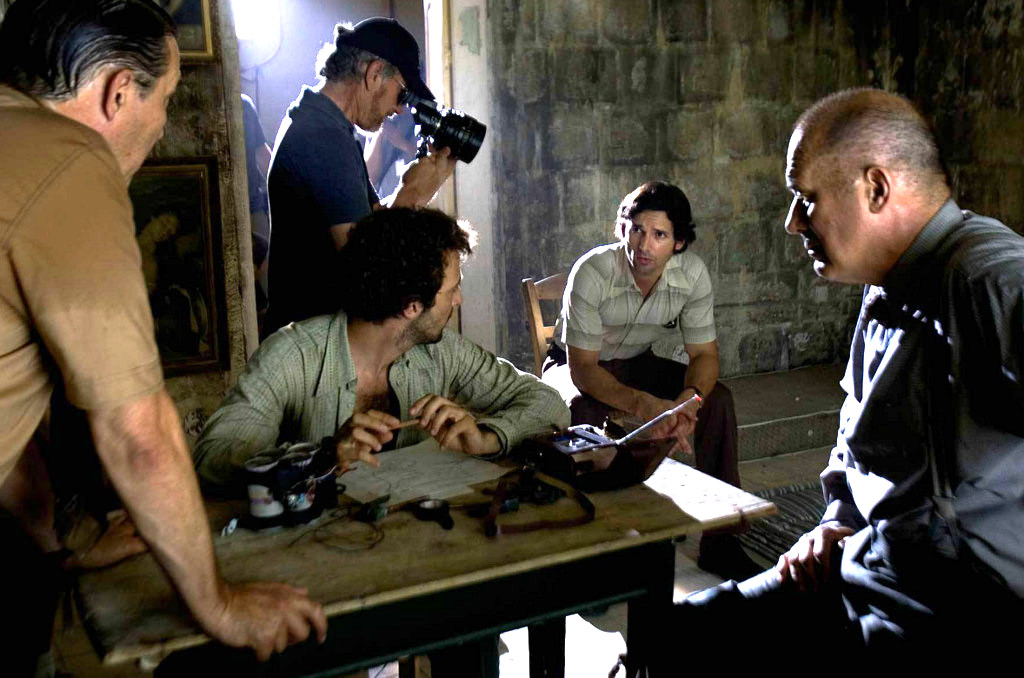 Kristóf DeákIf you've had a chance to catch the touring films in the Oscar nominated shorts program in select movie theaters now, we're willing to be that one of your favorites was the Hungarian short Sing written and directed by Kristóf Deák. This sweet well acted story is about a new girl in a children's choir whose teacher makes her feel less than welcome.
Kristóf DeákIf you've had a chance to catch the touring films in the Oscar nominated shorts program in select movie theaters now, we're willing to be that one of your favorites was the Hungarian short Sing written and directed by Kristóf Deák. This sweet well acted story is about a new girl in a children's choir whose teacher makes her feel less than welcome.
Sing, not to be confused with the current blockbuster cartoon about pop star wannabe talking animals, could well be a threat to win its category though competition is ever tough and unpredictable in the shorts categories. Kristóf has seen and enjoyed the "strong batch" competition, saying "I won't shed any tears if we don't take the statue home"
I had the opportunity to talk to the young director, currently in Los Angeles for the final push before Oscar, and though he doesn't know what's in store for his career, he's taiken the smart stance of "be ready with projects and pitches" should key opportunities arise. The London based Hungarian director got his first post film school movie gig in the large editing department of Steven Spielberg's Munich (2005) and now he's an Oscar nominee for his fourth short which has been picking up several prizes at festivals.
Our chat follows..

NATHANIEL R: Where did this story come from?
KRISTÓF DEÁK: The story itself was based on something that happened to a friend of mine. A few rehearsals in she was told to mime instead of sing to stay in the choir. I unpacked the story, the ending is fictional. What surprised me is its quite universal. In Japan and the US and at all the festivals I had reactions from people that said that similar things happened them.
I could hide meaning and a wider message in this simple story.
It does have a lot of fliexibility as a metaphor for marginalization and whatnot. Was it always going to be a short film?
It lends itself to that. You could get into the friends or their families but I don't think it would add too much to turn it into a feature. The next short film I'm making there is so much material that it could actually be turned into a feature. Certain stories need four season arcs like TV series, certain stories need two hours. Each story has its own length.
Short films are such a specific wing of cinema. But other than festivals and awards they don't get a lot of attention.
I have a belief in short films. I think younger generations especially - they access all of their cinematic experience in a digitial way. There's a brilliantly curated short film collection on Vimeo. It's really accessible but there's just not a business model for it so there's no way to encourage filmmakers to make short after short. But I think a business model will come. I think there's interest.
You've made a few shorts before this. Did you know that this one was going to blow up in the way that it did?
This was the first film where I felt really happy about it once I finished it. We had a cast and crew premiere and I could tell that a lot of people really responded to it. That's how I made the decision to push it as hard as we could in the festivals.
The young leads are both very good in this film, so natural.
It was a huge thing to find the kids who could carry this. Once we found them everything was smooth sailing. I could talk to them like I could grown up actors. We did a lot of work, a lot of rehearsals so that they could really inhabit their characters. I don't like to be the director who knows everything. I thrive in collaboration and improvisation. These 11 year old girls who were so creative and playful.
One of my favorite details was the way they bonded over their bracelets.
That was half improv. They had a few lines to arrive to but they improv'ed around that.

NATHANIEL R: You're fairly young as filmmakers go, so this Oscar nomination must be very exciting.
KRISTÓF DEÁK: It's unbelievable. I mostly made my short films for training. I never thought we'd get this far.
But now you're a believer (laughter)
Now I'm a believer!
You started as en editor but was directing always the goal?
I went to film school in Hungary and then my masters in London. I started in production to get a quick grasp on what it takes. I realized that editing can make or break a film and that's what I decided to switch to. But the final goal was always directing. I kept my eye on the ball but it doesn't automatically happen.
No, film careers take time to build. But your very first job was on Spielberg's Munich. Talk about starting on a big production! Was that daunting?

KRISTÓF DEÁK: I was the smallest little cog in that incredible machine. Obviously it was a huge Hollywood picture coming to Budapest. They hired a lot of locals and I joined an editing team of seven people. They were there for a good two months. They were editing on 35 mm film so they needed a lot of hands. I was an extra set of hands. It was a fantastic experience and for a while I thought 'That's the closest I'll get to Hollywood.'
Well now you're an Oscar nominee, so you were wrong! The Oscar frontrunner is a musical this year and your film is about a choir. Do musicals interest you?
Absolutely! Music and rhythm are at the heart of emotional experience of cinema. I always pay special attention to musical films. Once and Sing Street are huge favorites. I adore La La Land's music, really clever score. Music in film and musical films are both things I'm really interested in. That's probably going to be a thread in my work going forward.

previous interviews | more on short films